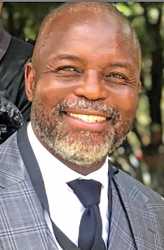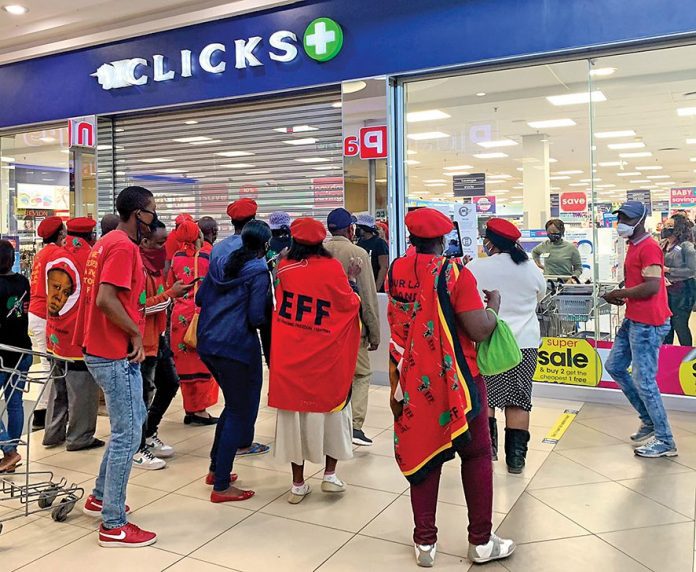Exactly twenty years ago just before I left my last corporate job as chief marketing officer for Nike for Africa as I exited my tenure as “the first black” Loerie’s advertising awards chairperson, I co-presented a paper of the transformation of advertising creativity at the Financial Mail AdFocus Conference.
It was a critical reflection on South African creativity’s relevance, accessibility, and distinctiveness in transforming society.
The paper was necessitated by the lack of transformation in a local industry obsessed with impressing international awards juries with creative work that was often out of touch with its domicile. Not much has changed. If anything.
Almost 30 years into the “new” South Africa transformation, and on the eve of the 62nd anniversary of Human Rights Day, it is fair to conclude that black African’s rights, especially commercial and cultural, are still being decimated.
[membership level=”1″]Between then and now there’s has been an establishment of the Communication & Advertising Forum for Empowerment by leading black advertising professionals, the promulgation of the Marketing, Advertising and Communication Sector Code, Broad-Based Black Economic Empowerment Act, and Consumer Affairs (Unfair Business Practices) Act, all with a common goal to broadly ensure the industry, its people and its product, reflect an inclusive and diverse society, promotes pride and respects for human dignity and advances economic transformation.
However, since then, there have been countless examples of how none of these efforts have yielded any success.
Whether it’s Clicks TRESemmé’s racist hair advertising; Thando Mahlangu being kicked out of Boulders Mall and Clicks because of his traditional Ndebele attire; H&M store in Sandton City being trashed in retaliation of its offensive “Coolest Monkey” advert; Unilever’s Dove’s having to apologize for publishing an advert showing a black woman turning into a white woman; the industry is none the wiser nor the better.
It is unconscionable but perhaps not so inexplicable how the R35-billion advertising industry remains such a steadfast and resistant bastion of the past.
An analysis of the Top 100 advertisers shows that other than Lotto (about R150m), the Broadcasting Complaints Commission SA (about R250m) and the governments of Gauteng, Western Cape and Kwa-Zulu Natal who collectively account for an estimated R500m, 99,97% of the list is dominated by local and international multinational advertisers “serving” a country that is an estimated 78,9% African black, 76,9% speak an indigenous language other than Afrikaans and English, and 94,6% are literate.
The Top 5 global advertising networks, WPP, IPG, Omnicom, Publicis, and Densu account for 95% of advertising money in South Africa.
The provenance of the decisions then seem quite clear. With the majority of the advertisers and agency networks having complex foreign and/or non-African black ownership, the provenance for the ultimate decisions is quite clear. While the industry tends to applaud itself on the “transformation” on the basis of the number of black marketing directors, agency leaders, and creative directors, many are not exactly in charge as the ultimate decision-makers do not represent nor reflect a transformed South Africa.
As urgent and necessary as past week’s South African Human Rights Commission hearings into racism and discrimination in the industry are, calls such as the EFF’s Dr. Mbuyiseni Ndlozi’s for a R50-billion punitive fine to the industry, or the government’s announcement to set up yet another institution to regulate and transform the sector, none of these will be sustainable or effective.
There is no need for more legislation. No more need for offensive transformation committees, no more training programmes. Now is the time for black Africans to create and promote their own brands and ultimately make the decision of who will spend their marketing money.
It is not just a commercial but a fundamental human right if South Africa is to truly achieve equality.
- Thebe Ikalafeng is a global African branding and intellectual property law adviser, academic and founder and chairperson of Brand Africa and the Brand Leadership Group, and the founder and principal of the Africa Brand Leadership Academy.

Follow @SundayWorldZA on Twitter and @sundayworldza on Instagram, or like our Facebook Page, Sunday World, by clicking here for the latest breaking news in South Africa. To Subscribe to Sunday World, click here.
[/membership] [pmpro_signup submit_button=”Register” level=”1″ login=”1″ redirect=”referrer” short=”false” title=”Thank you for choosing Sunday World, to read this article for free, please register below at no cost.” short=”true” custom_fields=”true”]


